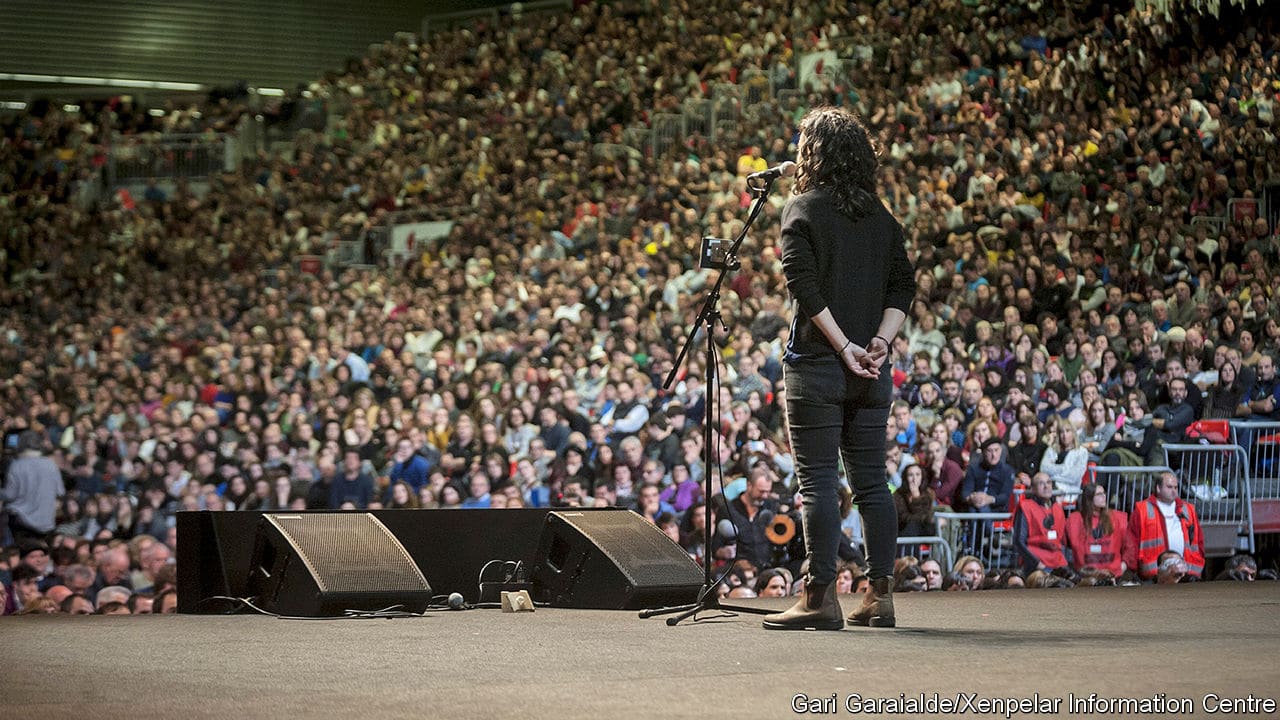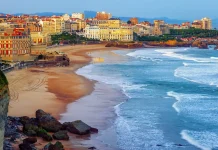This article was translated by John R. Bopp
On Valentine’s Day, The Economist, in both their print and online editions, regaled their readers with a true love story, or rather a story of true love.
It talked about bertsolaritza, its growth in the last few years, and its role in helping Basque to recover. But it most notably spoke about the love of a people for its language, for one of the key elements of its Being and the strength with which it’s getting its language back.
Nevertheless, we can also find out about all the difficulties those who take a look at us from outside face, even when doing so with fondness, when defining us as a country. Being a nations divided up into three administrations in two countries has its consequences, meaning there are those who confuse the Basque Autonomous Community with the Basque Country as a whole, or think the Navarrese Foral Community is all there is to Navarre, forgetting its territory north of the Pyrenees.
But the imprecision that can arise when writing about us from far away is not their fault; rather, that belongs to our situation, and is the consequence of the poor use of the terms by the media and institutions closer to home. Sometimes this “poor use” is willful, aiming to divide us up, while other times it’s just a reflection of lack of knowledge, or an accommodation to the reality we’ve been forced to live.
But on the other hand, try as we might, we can’t understand what the phrase “Basque nationalism has dark, exclusionary undertones” that appears towards the end of the article means. It has far fewer “dark, exclusionary undertones” than the ideas which guide the British to leave the European Union, or those which force the Basques, or the Catalans (to mention something that’s in the papers) to form a part of a reality because of mere imposition.
But getting back to the article. It’s great to see that our nation, not “region”, is being talked about by a medium like The Economist regarding an element of Basque culture that has so much weight and so much magic as bertsolaritza does—it’s great news.
We’ll leave you with the article (you have to be registered to read it: it’s free and we can assure you that giving them a little info is in no way a bother) and the video in which Maialen Lujanbio, one of the protagonists of the article, won the Txapela that recognizes her as the winner of the Basque Country Bertsolari Championship.
The Economist – 14/2/2019 – Great Britain
Poetry slams are helping to revitalise the Basque language
Before an audience of 500 people on the outskirts of Pamplona, Maialen Lujanbio, the reigning champion of bertsolaritza, the Basque oral tradition of improvised song, steps up to the microphone. She stands in silence, thinking.
(Follow) (Automatic translation)
Last Updated on Dec 20, 2020 by About Basque Country





